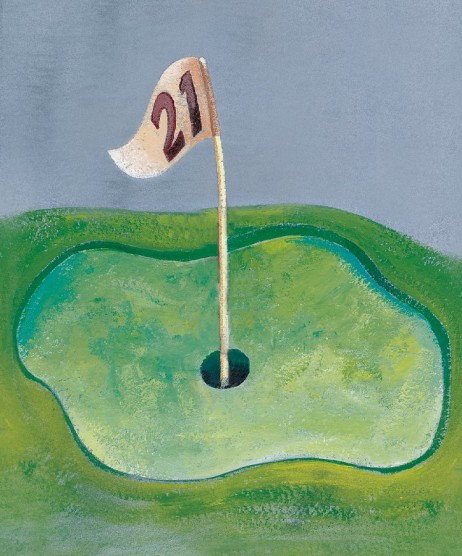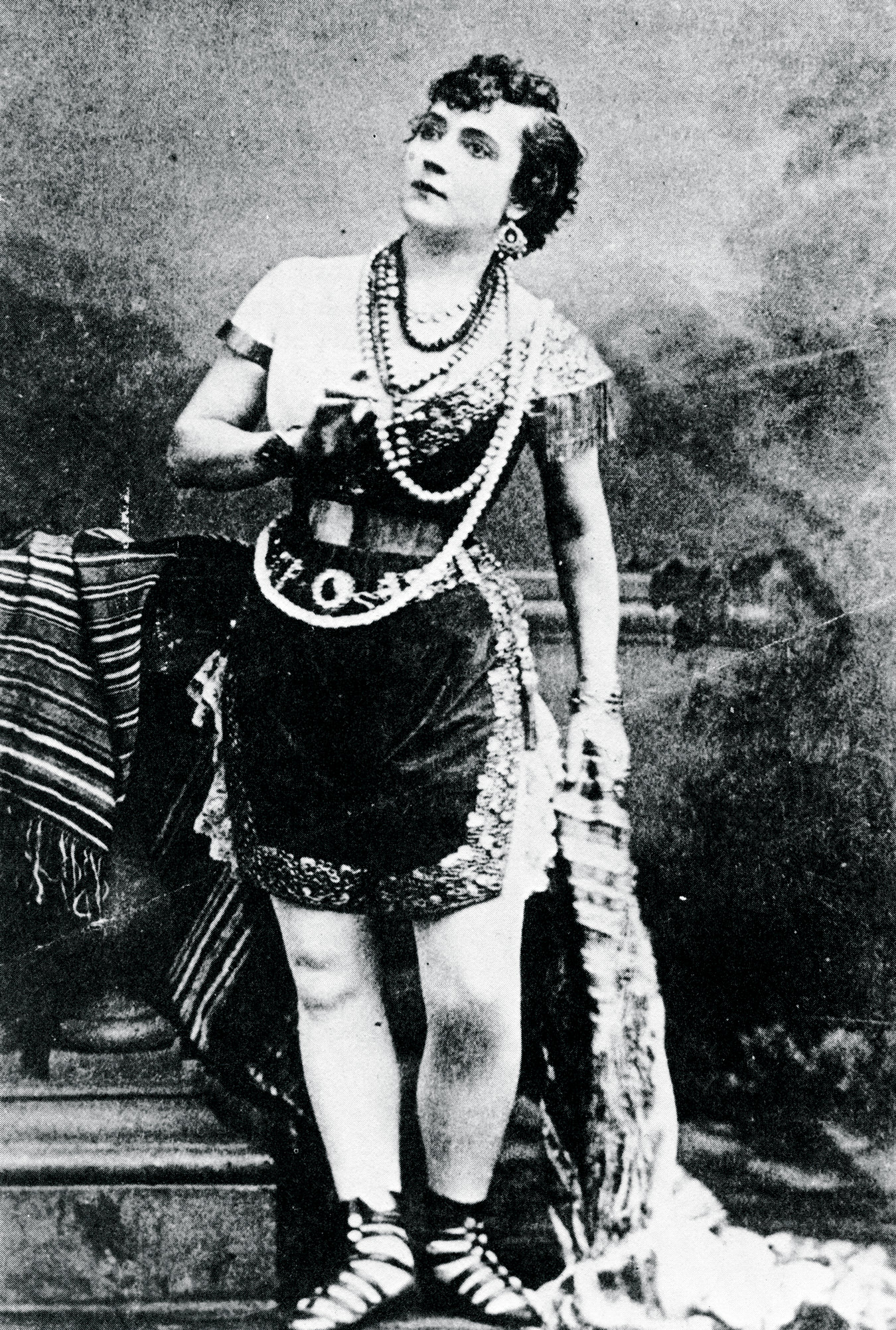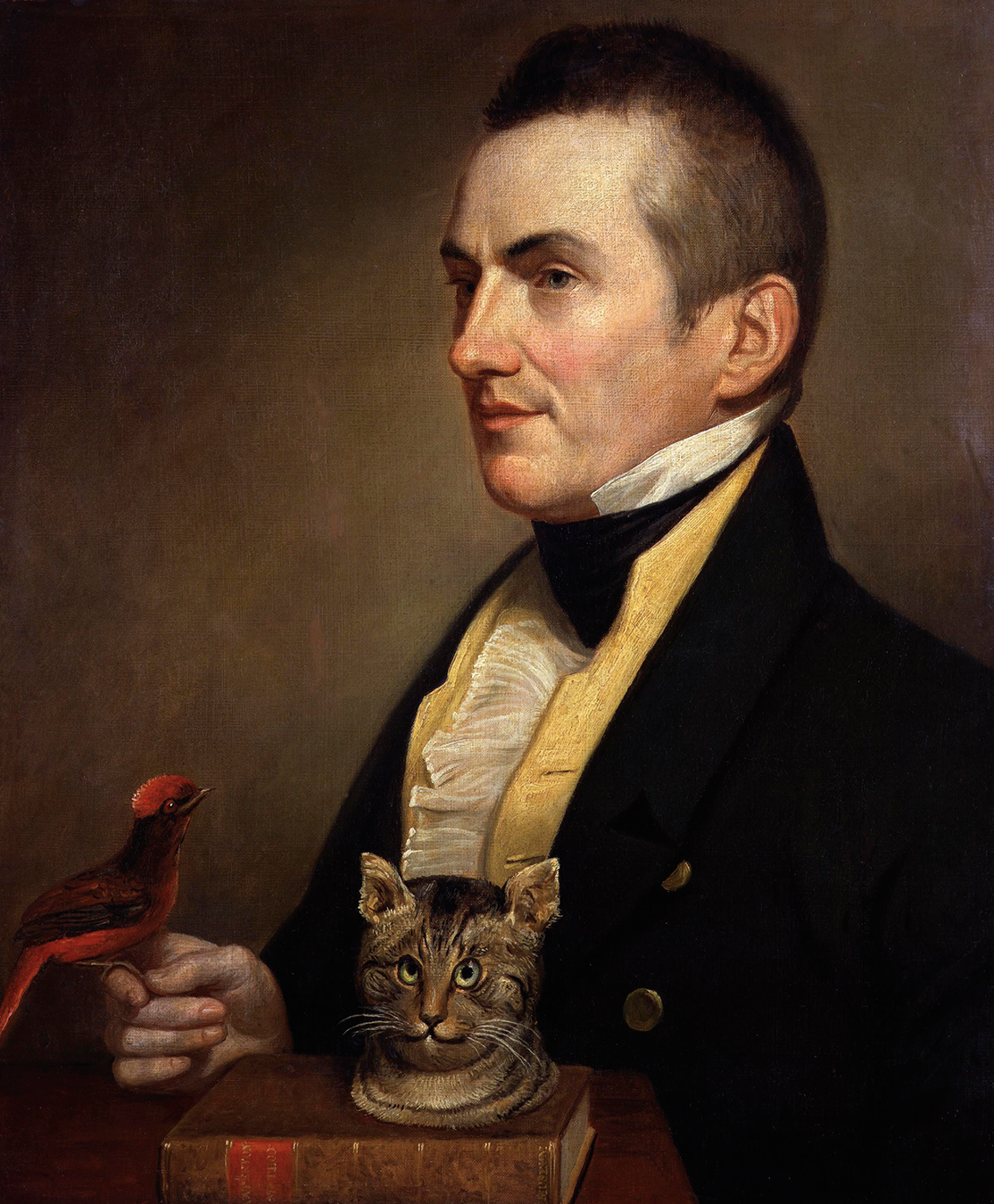Scalawags: Titanic Thompson
Renaissance man of rounders.

He was the Renaissance man of rounders, the hustler’s Leonardo Da Vinci. Only this hillbilly worked more than the Italian. He had no princely patrons, either, but made his money from suckers and fools. Da Vinci painted, sketched improbable inventions and saw into the future. Titanic Thompson created fantastical propositions that reached fruition and could see five hands ahead. He made millions at poker, golf, craps, horseshoes, shooting and the proposition. He loved women as much as Da Vinci detested them. So Da Vinci wrote left-handed and backwards? Thompson hustled professional golfers playing right-handed and beat them by one stroke merely as a set-up, after which he offered, at good odds, to play them left-handed.
Thompson took up golf when he was 30 years old. On the second round he ever played he beat the club pro. Later, he’d defeat the top players of his day: Byron Nelson, Sam Snead, Ben Hogan. When asked why he didn’t join the professional ranks, Thompson replied, “I don’t want to take a cut in pay.”
He was even better at poker and at shooting, with pistol or rifle. When he was an old man and too notorious to hustle, Thompson won the Oklahoma State trap shooting competition four years in a row. He is on record as having shot five men to death, and there appears to be enough evidence to finger him for one of the great unsolved killings of the early 20th century.
He was born Alvin Clarence Thomas in 1892 in Monett, Missouri, and raised in the Ozark Mountains. His father preferred gambling to trying to eke out a living on a couple of unyielding acres of dirt, and took off for the bright lights when his son was six months old. The boy moved with his mother and stepfather from one rented farm to another. His childhood was spent so far back in the hills, he had no friends. When the boy was eight years old his grandfather gave him a rifle and he soon became an uncanny shot. With his relatives he played poker and checkers, pitched pennies and threw rocks at targets. For most kids, these were merely the typical pursuits of the time and place; for Alvin Clarence they’d be his future.
He made his first big score at age 15. He’d trained his dog to fetch rocks from the bottom of a nearby stream. The kid would mark them with an ‘x’ and throw them in the middle of the water; the dog would dive to the bottom and come up with the rock. One afternoon, he discovered a stranger at his stream, fishing with a fancy rod and reel. The boy admired the rod and reel, and the stranger admired the boy’s dog. When the man offered to buy the dog, the boy refused but said he’d bet his pet against the rod and reel, that the dog could retrieve any rock the man tossed into the river. The man agreed, picked up a rock that the boy marked with his penknife and threw it. The dog dove to the bottom of the water and came up with the rock. When the man refused to pay, the kid raised his .22, looked the stranger in the eye. The man handed over the rod and reel.
The kid saw the possibilities revealed by the incident, and soon was on the road, serving his hustler’s apprenticeship. Age 16 and 6’2,” 210 pounds, he was shooting dice with the owner of the riverboat on which he was a deckhand. The owner was down a thousand dollars, bet the vessel against his debt, and Alvin Clarence was soon the owner of a riverboat. He turned it into a floating gambling hall but lost the boat after shooting two thieves to death. The local sheriff forced him to sign over the title in lieu of going to jail.
He wandered all over the south and southwest, hustling whatever and whomever. He ran into his own father, at a card game in Oklahoma, and fleeced him. He disliked the man so much that he changed his last name to Thompson. It was in a pool hall in Oklahoma that he acquired his nickname. The great new ship, yet to be launched, was all the news. Thompson had just taken the local hustlers for thousands at pool and cards, and someone wondered out loud how the young fellow could beat everyone so easily. Another player remarked, “He’s Titanic, unsinkable.”
Titanic or Ty, as he was usually called, hustled all the time, morning til night. When he wasn’t actually working he was thinking about it, visualizing cards or thinking up propositions. You’d see him on the porch of a hotel after an all-night poker session or a floating crap game. Seemingly at his leisure, eating walnuts from a bag. A fellow would sit next to him and they’d start talking. Ty, a genial sort, would keep offering the other man walnuts. “I bet I can throw one of these walnuts over the top of that building across the street,” Ty would say. “Impossible,” the other man would reply. “Wanna bet?” ”Sure,” said the sucker.
This is a proposition bet. The hustler laid out a proposition, a seemingly impossible one, and greed encouraged the sucker to lay down his money. Ty stepped off the porch and threw the walnut over the roof of the five-story building across the street. The startled sucker paid up, shaking his head. Ty had his own special walnut with a piece of lead inside. He made over a million dollars on these proposition bets alone.

He hit New York just before the end of the First World War and immediately became a star in that firmament that glittered on the pavement around Lindy’s Restaurant on Lower Broadway, an area Damon Runyon dubbed Jacob’s Beach. Runyon was so entranced by Ty’s tales that he reworked many of them into his own short stories. In the terrible movie made from them, Guys and Dolls, Marlon Brando is monumentally miscast as Sky Masterson, who is based on Titanic Thompson.
In the early 20s, Ty went out to Chicago to confront Nick ‘the Greek’ Dandalos. The two supreme hustlers went on the road together, winning millions of dollars all over the United States. In 1928, Ty was back in New York in a game of five-card stud at the Congress Apartment Building. Among the players was Arnold Rothstein, Mr. Big, the man who fixed the 1919 World Series, the most notorious gambler of his day, if not the best. He is Wolfsheim, in F. Scott Fitzgerald’s The Great Gatsby. The police knew him as ‘The J.P. Morgan of the underworld.’
By the time the game ended after 30 hours, Rothstein was in debt to six men, Ty among them, for over half a million dollars. Rothstein gave his markers but after two weeks when he hadn’t honoured them, he was found dead. The police found no evidence to convict any of the men in the game. Recently, however, a screenwriter, interested in making a movie about Titanic Thompson, has claimed to have proof Ty was the killer.
He got so much notoriety after the Rothstein killing, not to mention taking Nick ‘the Greek’ for a million dollars in a poker game, that Thompson’s big-time card hustling days went on the decline. His picture had been in too many papers. Golf became his big money maker. When he played cards it was mainly with small-timers that were after bragging rights.
Thompson’s high stakes career on the links lasted a decade by which time such a legend had developed, it was difficult to get a game. In the late 50s when he was nearly 70 years old he went out hustling with a young Lee Elder. Elder would become the first black man to play in the Masters Tournament. They made money as a twosome based on the suckers’ notion that a black man and an old man wouldn’t be hard to beat.
Cowboy Wolford, one of the last of the great road gamblers, opened a card club with Titanic in Tyler, Texas in the 60s. The old man still worked propositions on the side. “In Dallas he noticed that everyday at 5pm, a breeze came up in front of a building downtown, causing quite an updraft. Ty discovered he could pitch a playing card into the air and the wind would carry it to the top of the building. He practiced to the point he could do it perfectly.”
Ty won thousands of dollars from people who’d bet he couldn’t do it.
Not long before he died Titanic was visited by his first son. The boy had tried to pattern himself after his father, driving fancy cars, squiring gaudy women, taking up poker, golf, and shooting. He challenged his father who immediately sat down and took him for $60,000 at poker. Ty gave the money back, won it again at skeet shooting, gave it back, and finally beat his son on the golf course but let the kid keep the money.
Titanic Thompson died broke in a nursing home in 1974. He’d given all his money away.








